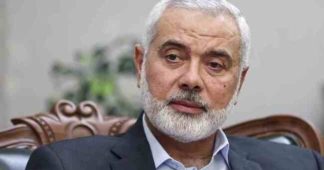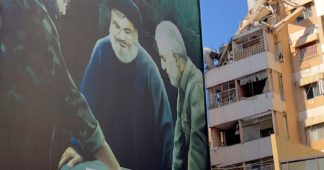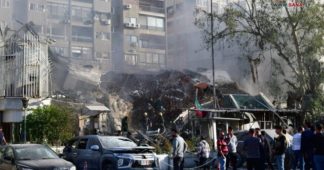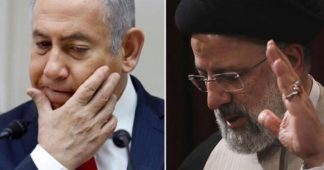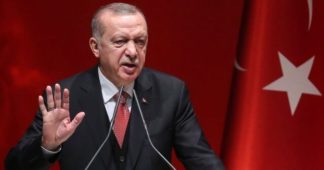In a major escalation in the region, the New York Times reported that Iran’s supreme leader Ayatollah Khamenei has ordered its troops to carry out direct strikes against Israel
By Abhijeet Kuma
Aug. 1, 2024
A day after Hamas leader Ismail Haniyeh was assassinated in Tehran, Iran’s supreme leader Ayatollah Ali Khamenei, has ordered a direct strike on Israel, according to a report by the New York Times.
The US national daily cited three Iranian officials briefed on the order directly, including two members of the Revolutionary Guards. Khamenei issued the order during an emergency meeting of Iran’s Supreme National Security Council on Wednesday morning, shortly after Iran announced Haniyeh’s death, the report said.
Iran and Hamas have accused Israel of carrying out the assassination. Israel, which is currently engaged in conflict with Hamas in the Gaza Strip, has neither confirmed nor denied its involvement in Haniyeh’s killing. Haniyeh was in Tehran for the inauguration of Iran’s new president at the time of his death.
Khamenei’s declaration
Khamenei, who has ultimate authority over state matters and serves as the commander-in-chief of the armed forces, has instructed military commanders from the Revolutionary Guards and the army to prepare for both offensive and defensive actions in case the conflict escalates and Israel or the US strike Iran, NYT claimed.
In his public statement regarding Haniyeh’s death, Khamenei indicated that Iran would retaliate directly, declaring, “We see avenging his blood as our duty,” emphasising that the assassination occurred on Iranian territory. He stated that Israel had set the stage for receiving “a severe punishment”, according to the New York Times.
Iran’s stance on Israel’s offensive in Gaza
Israel has a history of targeting its adversaries abroad, including Iranian nuclear scientists and military commanders, according to the New York Times. During nearly ten months of conflict in Gaza, Iran has attempted to maintain a delicate balance by increasing attacks through its allies and proxy forces in the region, while avoiding a full-scale war with Israel.
However, in a significant escalation in April, Iran launched hundreds of missiles and drones at Israel in retaliation for an Israeli strike on its embassy compound in Damascus, which killed several Iranian military commanders. This marked one of Iran’s most overt attacks on Israel.
Iran, along with the regional forces it backs — Hamas, Hezbollah in Lebanon, the Houthis in Yemen, and various militias in Iraq—forms what they call the “axis of resistance”. This alliance aims to counter Israeli and Western influence in the region.
Iran’s action plan
The assassination of Haniyeh represents a significant security breach for Iran, which prides itself on its strength but has struggled to prevent Israeli covert operations on its soil. The breach was particularly humiliating due to Haniyeh’s prominence, the presence of other allies, and the fact that the attack occurred at a highly secure Revolutionary Guards guesthouse during heightened security in the capital. This has sparked outrage among Iranian government supporters and officials, who criticised the failure to protect Haniyeh. Many have called for a focus on internal security to safeguard senior officials.
It remains uncertain how forcefully Iran will respond to Haniyeh’s assassination. Iranian military commanders are considering a combination of drone and missile attacks on military targets near Tel Aviv and Haifa, while deliberately avoiding civilian areas, the NYT report said. Additionally, there is discussion of a coordinated attack involving Iran and its allied forces from Yemen, Syria, and Iraq to maximise the impact.
Who was Ismail Haniyeh?
Ismail Haniyeh was a significant Palestinian political figure who had a major influence on Middle East politics. Born in 1963 in Gaza’s Shati refugee camp, he pursued his education in United Nations-run schools and graduated from the Islamic University of Gaza with a degree in Arabic literature in 1987. During his time at university, Haniyeh became actively involved with Hamas.
Haniyeh played a prominent role in the First Intifada, participating in protests against Israeli occupation. His activism led to his imprisonment by an Israeli military court. After his release, Israeli authorities deported him to Lebanon along with other senior Hamas leaders, including Abdel-Aziz al-Rantissi, Mahmoud Zahhar, Aziz Duwaik, and 400 additional activists.
We remind our readers that publication of articles on our site does not mean that we agree with what is written. Our policy is to publish anything which we consider of interest, so as to assist our readers in forming their opinions. Sometimes we even publish articles with which we totally disagree, since we believe it is important for our readers to be informed on as wide a spectrum of views as possible.
